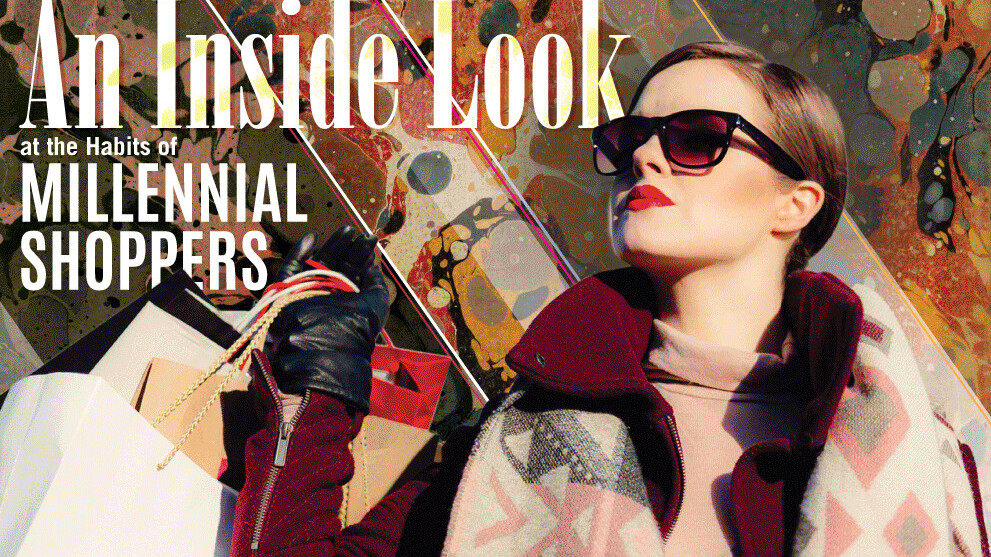
Millennials are changing the retail landscape in some pretty unexpected ways. This largest generation in United States history is pretty broke – they’ve grown up in the great recession, they are saddled with student loan debt, and they make about $2000 less per year than young adults did in 1980. They are still spending money, they are just doing it a little differently than those who came before them.
Smartphones And The Internet Are Changing The Rules
According to a study by Accenture, “Millennials are not only transforming their own shopping behaviors but those of their parents, who are increasingly mimicking the demands of their children for seamlessness as they climb the digital learning curve. One consequence of this evolution is that the retail environment will probably change faster than many companies expect in the coming years, and many retailers will find themselves falling further and further behind.”
The study continued:“That’s because delivering products and services in a truly seamless fashion will require companies to make profound changes across their entire organizations—changes that many seem either unprepared or unwilling to make. To close this emerging consumer generation gap, retail leaders need to take action now to provide the seamless end-to-end experience Millennials demand.”
This year alone more than 3000 brick and mortar retail locations are expected to close due to online sales competition. Millennials often report doing things like going to a store to see something in person and then buying online to get the best deal or basing which store they go to on whether their website shows inventory information in real time.
Retailers have to keep up with changing customer habits by giving consumers the information they want and matching online retail prices whenever possible. More than half of Millennials will use their smartphones to search for a coupon or discount code while in the store, so capturing that audience while they have their wallets out is crucial.
Social media is another important piece of this smartphone/internet puzzle. Millennials often turn to online customer service first before telephone and in-person customer service, so being responsive online is key to gaining Millennial consumers. Nearly 85% of Millennials use their phones in store for assistance on a purchase, and again it’s crucial to reach them while they have their wallets out.
Millennials Are Frugal And Socially Conscious
Even though blame is often heaped on the Millennial generation for being careless and selfish, their retail habits do not reflect those attributes. Millennials invented the sharing economy and take part in it more often than any other generation, sharing rides and homes instead of owning cars and houses. They frequent thrift shops instead of buying new, and thrift shops as a category are growing 20 times faster than traditional retail outlets.
According to Forbes:
- “Secondhand apparel, offline and online, is an $18 billion industry and forecast to grow by about 11% per year and become a $33 billion industry by 2021. In a world where apparel sales are declining for the big retailers, that’s huge growth in market share.”
- “The women who have the highest likelihood of shopping for secondhand clothes are women over 65 and women 18-24. Both groups are motivated by the savings but the younger consumers are almost 2.5 times more likely to be motivated by environmental consciousness when shopping for secondhand clothes.”
In short, Millennials are not only being more frugal with their hard earned dollars, they are also making decisions based on their desire to do better for the environment.
Millennials Are Motivated By Lifestyle
In addition to being socially and environmentally conscious shoppers, Millennials also want to be able to share their experiences with friends on social media. Experiences are much more important than things, and Millennials are more likely to spend money on experiences they can document on social media.
- 78% of Millennials say they prefer buying experiences over things
- 82% of Millennials participate in festivals, concerts, and other live events
- 55% of Millennials say they spend more on live experiences than in the past
Millennials want to experience things IRL and share it all over social media, and brands need to adjust their strategies accordingly. Millennials both give feedback online and listen to online feedback given by peers, they reference specific brands in blog and social media posts, and they are willing to give feedback via surveys.
Nearly half of Millennials report wanting to do business with companies that are environmentally conscious or support social causes. There are ample opportunities for brands to learn what Millennials want and act on it if they are willing to listen.
Is Your Brand Listening To Millennials?
We all know that if you don’t adapt, you die. We are seeing a massive die-off of retailers that have been through decades of change but somehow just aren’t making the changes necessary to attract Millennial consumers. It may be time to take a good hard look at your company’s marketing practices and ask yourself: have we adapted to meet the needs of Millennial shoppers?
Get the TNW newsletter
Get the most important tech news in your inbox each week.





